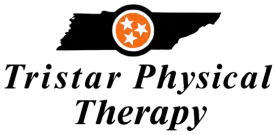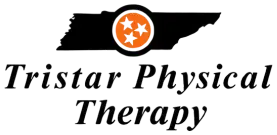Table of Contents
- Understanding the Transformative Journey of Pregnancy
- The Role of Postpartum Physical Therapy
- Why Postpartum Physical Therapy is Essential
Pregnancy is an incredible journey that transforms a woman’s body in miraculous ways. From the moment of conception to the day of delivery, a woman’s body goes through an extraordinary process to bring new life into the world. However, this incredible journey often leaves lasting physical changes, which is why postpartum physical therapy has become an essential part of the post-pregnancy experience.
Understanding the Transformative Journey of Pregnancy
Pregnancy is undoubtedly a transformative experience, both emotionally and physically. It’s a time of excitement, anticipation, and often, discomfort. As the body undergoes incredible changes to nurture and bring new life into the world, it’s crucial to recognize the significant impact it has on a woman’s body. Postpartum, many mothers find themselves grappling with physical challenges that can persist long after childbirth.
Physical Changes During Pregnancy
Pregnancy is a beautiful phase of life, but it can also take a toll on a woman’s body. The physical changes that occur during pregnancy are numerous and varied. From weight gain and shifts in the body’s center of gravity to the stretching and weakening of muscles and ligaments, these changes can result in a range of post-pregnancy issues. Common problems include lower back pain, weakened pelvic floor muscles, abdominal separation (diastasis recti), and urinary incontinence. This is where postpartum physical therapy comes into play.
The Role of Postpartum Physical Therapy
Postpartum physical therapy is a specialized branch of physical therapy that focuses on addressing the unique needs of women who have recently given birth. It aims to help women recover from the physical strains of pregnancy and childbirth and regain strength, function, and overall well-being. This therapy is designed to be tailored to each woman’s individual needs, taking into account her specific pregnancy and birthing experience.
Addressing Post-Pregnancy Physical Challenges
Pregnancy is a miraculous journey marked by significant physical changes. A woman’s body adapts to accommodate the growing baby, with the uterus expanding, ligaments stretching, and muscles adjusting to the demands of pregnancy. Hormonal fluctuations further impact the body, leading to changes in joint stability and overall mobility. After childbirth, these changes don’t magically revert to their pre-pregnancy state. Instead, new mothers often face a host of physical challenges, including weakened pelvic floor muscles, abdominal separation (diastasis recti), back pain, and postural issues.
The Role of Postpartum Physical Therapy
Postpartum physical therapy is a specialized branch of physical therapy that focuses on addressing these post-pregnancy physical challenges. Its primary goal is to help mothers recover, regain their strength, and improve their overall function. It’s a comprehensive approach that goes beyond simply “bouncing back” after childbirth. Instead, it promotes the healing and strengthening of the body, allowing mothers to enjoy a higher quality of life.
Why Postpartum Physical Therapy is Essential
Pregnancy is a remarkable experience that marks the beginning of an exciting new chapter in a woman’s life. However, it also puts immense strain on the body, causing a multitude of physical changes. These changes include weight gain, muscle weakness, altered posture, and pelvic floor dysfunction. While these changes are a natural part of the pregnancy process, they can lead to a host of discomforts and health issues during the postpartum period. Postpartum physical therapy emerges as a beacon of hope for new mothers, offering tailored solutions to help them regain their strength and function after giving birth.
The Significance of Postpartum Physical Therapy
Postpartum physical therapy is a specialized branch of physical therapy that focuses on the unique needs of women after childbirth. It is designed to address the physical challenges that arise during pregnancy and persist post-delivery. This therapy plays a crucial role in helping women recover from the physical toll of pregnancy, childbirth, and the demands of caring for a newborn.
Key Benefits of Postpartum Physical Therapy
- Individualized Assessment: Postpartum physical therapy begins with a thorough assessment of the mother’s physical condition, taking into account any complications during childbirth.
- Targeted Exercises: Physical therapists create customized exercise plans tailored to the mother’s needs, targeting areas like pelvic floor muscles and core strength.
- Education: Postpartum physical therapy provides mothers with valuable knowledge about their bodies and how to maintain optimal health.
- Holistic Approach: Postpartum physical therapy looks at the mother’s overall well-being, including mental health and pain management.
- Long-Term Benefits: Unlike traditional care that primarily focuses on the immediate postpartum period, physical therapy provides long-term benefits, helping mothers recover fully and prevent future issues.
In conclusion, postpartum physical therapy is a vital component of post-pregnancy care. While the journey of pregnancy and childbirth is beautiful and transformative, it can also leave lasting physical changes that need attention. This specialized form of physical therapy provides a safe and personalized way for women to restore their strength and function after pregnancy. It not only addresses the physical aspects but also considers the holistic well-being of the new mother.
As more women recognize the benefits of postpartum physical therapy, it is becoming an integral part of the post-pregnancy experience. Whether you’re a new mother or expecting, understanding the significance of this therapy is essential. It can make a significant difference in your post-pregnancy journey, helping you regain your strength and embrace motherhood with confidence. For postpartum physical therapy solutions, visit TriStar Physical Therapy at https://www.tristarpt.com.

